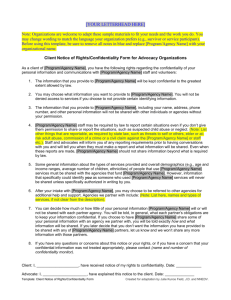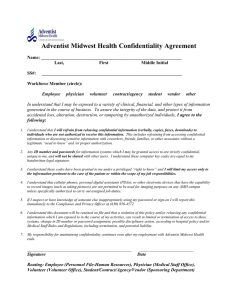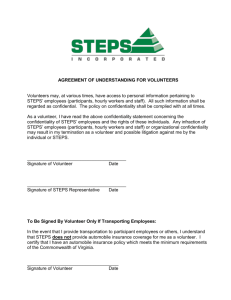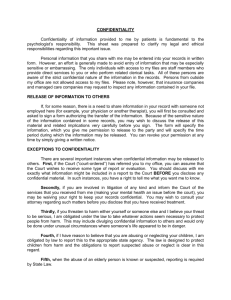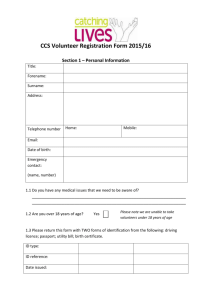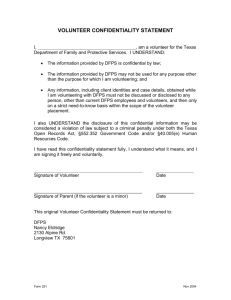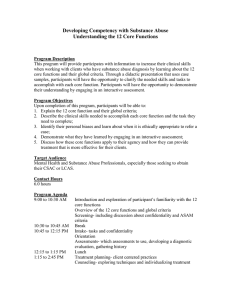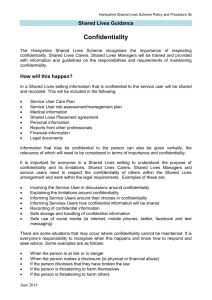Family Building Blocks Confidentiality & Mandatory Reporting Policies
advertisement
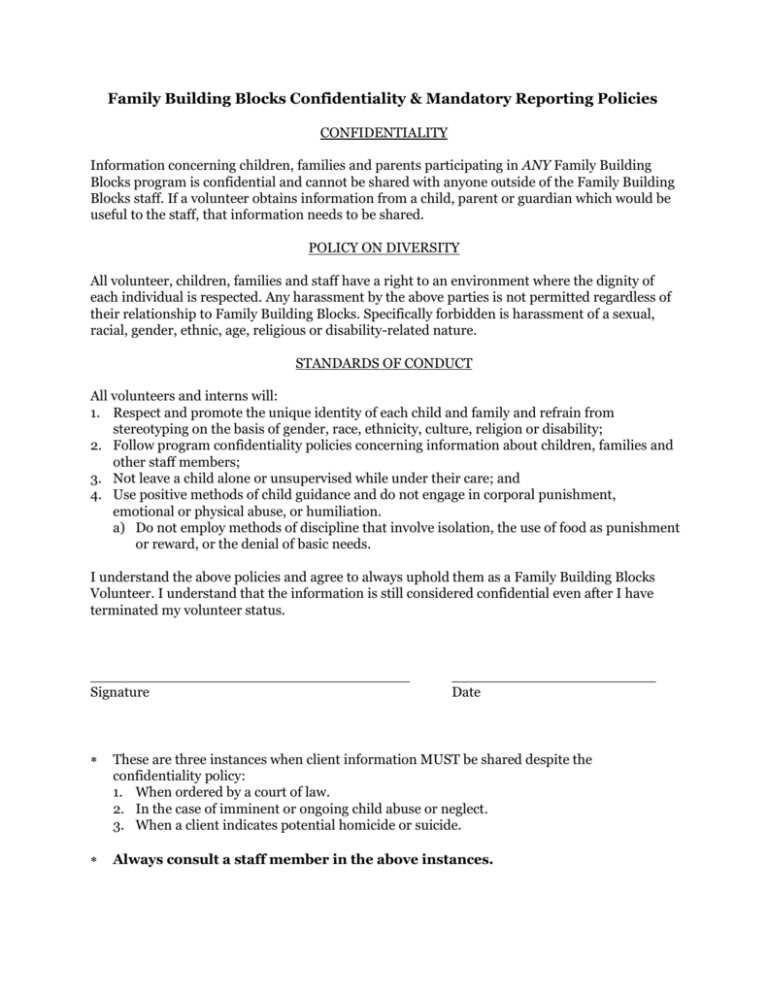
Family Building Blocks Confidentiality & Mandatory Reporting Policies CONFIDENTIALITY Information concerning children, families and parents participating in ANY Family Building Blocks program is confidential and cannot be shared with anyone outside of the Family Building Blocks staff. If a volunteer obtains information from a child, parent or guardian which would be useful to the staff, that information needs to be shared. POLICY ON DIVERSITY All volunteer, children, families and staff have a right to an environment where the dignity of each individual is respected. Any harassment by the above parties is not permitted regardless of their relationship to Family Building Blocks. Specifically forbidden is harassment of a sexual, racial, gender, ethnic, age, religious or disability-related nature. STANDARDS OF CONDUCT All volunteers and interns will: 1. Respect and promote the unique identity of each child and family and refrain from stereotyping on the basis of gender, race, ethnicity, culture, religion or disability; 2. Follow program confidentiality policies concerning information about children, families and other staff members; 3. Not leave a child alone or unsupervised while under their care; and 4. Use positive methods of child guidance and do not engage in corporal punishment, emotional or physical abuse, or humiliation. a) Do not employ methods of discipline that involve isolation, the use of food as punishment or reward, or the denial of basic needs. I understand the above policies and agree to always uphold them as a Family Building Blocks Volunteer. I understand that the information is still considered confidential even after I have terminated my volunteer status. ____________________________________ Signature _______________________ Date These are three instances when client information MUST be shared despite the confidentiality policy: 1. When ordered by a court of law. 2. In the case of imminent or ongoing child abuse or neglect. 3. When a client indicates potential homicide or suicide. Always consult a staff member in the above instances.
